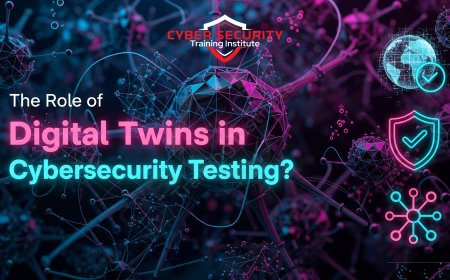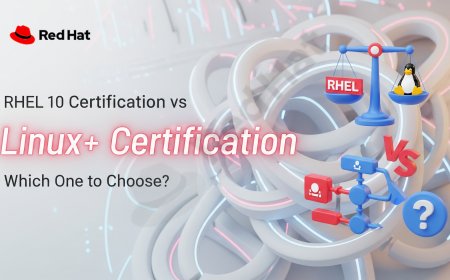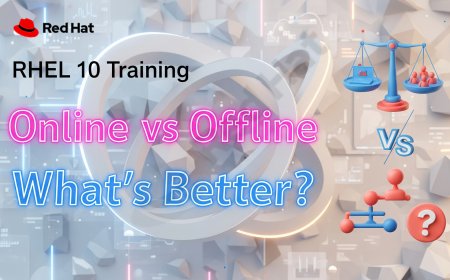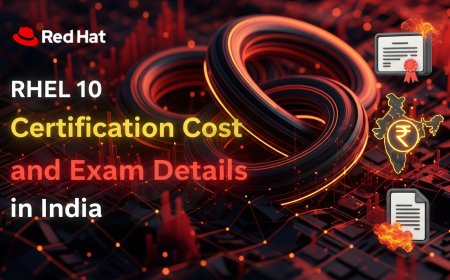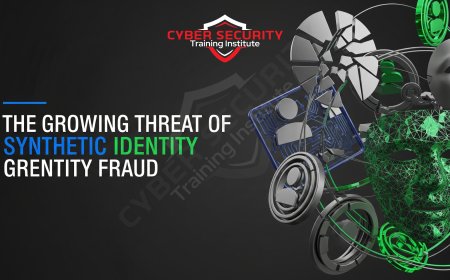Career Benefits of RHEL 10 Certification for IT Professionals
In the competitive modern IT job market, a Red Hat certification is the definitive credential for validating your expertise in the world's leading enterprise Linux platform. This in-depth article explores the significant career benefits that IT professionals can gain by earning a certification for Red Hat Enterprise Linux (RHEL) 10. We break down why the 100% performance-based nature of these exams makes them the gold standard in the industry, proving your hands-on, practical skills to employers. Discover how these certifications can lead to a significant increase in your earning potential and open doors to a wider range of job opportunities. The piece features a comparative analysis that maps the core Red Hat certifications—like the RHCSA and RHCE—to the specific, high-demand job roles they unlock, from system administrator to DevOps and Cloud Engineer. We also explore how pursuing certification is a critical way to stay relevant in the constantly evolving IT landscape. This is an essential read for any IT professional considering a Red Hat certification as a strategic investment in their own career progression and long-term success.
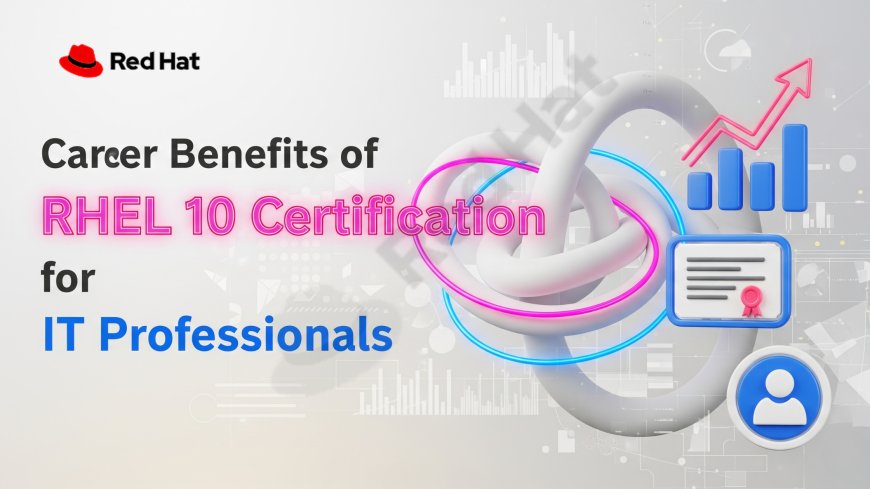
Introduction: More Than Just a Piece of Paper
In the fast-paced and ever-changing world of Information Technology, your skills are your most valuable currency. But in a crowded job market, how do you prove to a potential employer that you have the skills that truly matter? While real-world experience is key, a professional certification acts as a powerful, universally recognized validation of your expertise. In the world of enterprise Linux, which is the backbone of the modern data center, Red Hat certifications are the undisputed gold standard. Earning a certification on the latest version of Red Hat Enterprise Linux is a strategic career move. It provides immense benefits by validating your in-demand, practical skills, significantly increasing your earning potential, and opening doors to new and more senior roles in the competitive IT job market.
The Power of Performance-Based Exams
The first and most important reason why Red Hat certifications are so respected is that they are not a test of your theoretical knowledge. Unlike many other IT certifications that rely on multiple-choice questions, Red Hat exams are 100% hands-on, performance-based exams. When you sit for an exam like the Red Hat Certified System Administrator (RHCSA), you don't answer questions; you are given a live, running system and a list of real-world administrative tasks to perform. You must successfully configure the system to meet a set of specific criteria within a time limit.
This practical approach is what gives the certification its value. It proves to an employer that you don't just know about Linux; it proves that you can actually do the job. You have demonstrated tangible, hands-on, practical skills in a live environment. This is why hiring managers and recruiters worldwide hold these certifications in such high regard. It's a direct and reliable measure of your real-world competence, not just your ability to memorize facts from a textbook.
Increased Earning Potential and Job Opportunities
A Red Hat certification is a direct investment in your financial future and your career mobility. In a competitive job market, having a current RHCSA or, even better, a Red Hat Certified Engineer (RHCE) on your resume immediately makes you stand out from a pile of other candidates with similar experience. It's a powerful differentiator.
- Meeting Job Requirements: Many job postings for Linux administrator, cloud engineer, and DevOps engineer roles now list a Red Hat certification as either a mandatory or a highly preferred qualification. Having the certification can be the key that gets your resume past the initial HR filter and into the hands of the hiring manager.
- Salary Advantage: The value of these certifications is directly reflected in salary. Numerous independent industry salary surveys consistently show that certified IT professionals, particularly those who have achieved the RHCE level, command a significantly higher salary than their non-certified peers, even with the same number of years of experience.
A Clear Path for Career Progression
The Red Hat certification program is not just a single exam; it's a well-defined and respected career path that can guide your professional development from a junior administrator to a top-tier architect.
- The Foundation (RHCSA): The Red Hat Certified System Administrator is the essential starting point. Earning this certification validates that you have the core, foundational skills to competently manage a RHEL system. It is the prerequisite for all more advanced certifications.
- The Specialization (RHCE): The Red Hat Certified Engineer demonstrates your mastery of a more advanced, specialized skill set. In its modern form, the RHCE focuses entirely on automation with Ansible, a critical skill for anyone looking to move beyond traditional system administration and into more senior roles like DevOps, Site Reliability Engineering (SRE), and Cloud Engineering.
- The Expert Level (RHCA): The Red Hat Certified Architect is the pinnacle of the certification ladder. To earn this credential, you must hold an RHCE and then pass five additional, high-level exams in specialized areas like cloud services, OpenShift, and advanced security. It signals to the industry that you are a true, top-tier expert in the Red Hat ecosystem.
.
Comparative Analysis: Certifications and the Job Roles They Unlock
Each level of the Red Hat certification path is designed to validate the specific skills needed for a different set of job roles in the modern IT industry.
| Certification | Validates Skills In... | Unlocks Job Roles Like... |
|---|---|---|
| RHCSA (Red Hat Certified System Administrator) | Core Linux Administration. This includes managing users and groups, storage and filesystems, services, and basic security and container management. | Linux System Administrator, IT Support Engineer, Junior Cloud Administrator, Technical Support Specialist. |
| RHCE (Red Hat Certified Engineer) | Automation at Scale with Ansible. This includes writing and running complex playbooks, creating reusable roles, and managing system configurations with code. | DevOps Engineer, Cloud Engineer, Site Reliability Engineer (SRE), Automation Architect, Senior Systems Engineer. |
| RHCA (Red Hat Certified Architect) | Deep, expert-level knowledge in a broad range of Red Hat enterprise technologies, including OpenShift, virtualization, and advanced security. | Senior Cloud Architect, Linux Infrastructure Architect, Principal Systems Engineer, Security Architect, IT Consultant. |
Staying Relevant in a Changing IT Landscape
The world of Information Technology is in a state of constant flux. The tools, technologies, and best practices that were cutting-edge just a few years ago might be considered legacy today. One of the most important benefits of pursuing a certification is that it forces you to stay current. Holding a certification on the latest version of RHEL is a clear signal to the industry that you are committed to continuous learning and that your skills are relevant to the technologies that companies are deploying now, not the ones they were deploying five years ago.
Furthermore, the process of studying for a certification deepens your expertise. It forces you to learn the "right" way to do things according to the official documentation and industry best practices, not just the quick and dirty shortcuts you might have picked up on the job. This process of deep learning makes you a more well-rounded, knowledgeable, and valuable professional.
Conclusion: A Direct Investment in Your Future
In the competitive modern job market, a Red Hat certification is far more than just another logo to add to your resume. It is a respected and verifiable testament to your practical, hands-on skills. It is a direct and powerful way to differentiate yourself from other candidates, to prove your expertise to hiring managers, and to command a higher salary. The certification track also provides a clear and structured path for advancing your career from a junior administrator to a senior, highly-sought-after architect. In a world where your skills are your most important asset, investing the time and effort to earn a RHEL 10 certification is one of the single most effective investments you can make in your own professional future.
Frequently Asked Questions
Which Red Hat certification is the best one to get first?
The Red Hat Certified System Administrator (RHCSA) is the essential starting point. It is the foundational certification and a mandatory prerequisite for almost all other advanced Red Hat certifications.
Does getting an RHCSA guarantee me a job?
No certification can guarantee a job, but it significantly increases your chances. It makes your resume stand out and validates your skills, which can be the key to getting an interview and proving your competence.
How long does it take to study for the RHCE?
This depends heavily on your prior experience with Ansible. For an experienced sysadmin who is new to Ansible, it could take two to three months of dedicated, daily practice to master the concepts and be ready for the exam.
Is the RHCE still worth it now that it is focused on Ansible?
Absolutely. In fact, it is arguably more valuable. Automation is one of the most in-demand skills in the entire IT industry, and the RHCE is widely considered the premier, hands-on certification for validating your Ansible automation skills.
How should I list my certification on my resume or LinkedIn?
You should list the full name of the certification (e.g., "Red Hat Certified Engineer") and include your certification number, which allows a potential employer to officially verify your status with Red Hat.
Do Red Hat certifications expire?
Yes, they are considered "current" for three years. To maintain your certified status, you must earn another, higher-level Red Hat certification before the three-year period is up.
What is the difference between RHEL and other Linux distros like Ubuntu?
While both are excellent Linux distributions, RHEL is specifically focused on the needs of the enterprise market. It prioritizes long-term stability, security, and commercial support, which is why it is the standard in most large data centers.
Are the exams open book?
No, you cannot use external websites or your own notes. However, the exam environment does provide you with access to the official RHEL product documentation, just as you would have in a real-world job.
What is a "performance-based" exam?
It means you are graded on your ability to actually perform real-world tasks on a live system, not just on your ability to answer multiple-choice questions about them. You must successfully configure the system to pass.
What is a "digital badge"?
When you pass a Red Hat exam, you are issued a verifiable digital badge that you can display on your LinkedIn profile, your email signature, or your resume. It is a secure, digital proof of your certification.
Is an older certification still valuable?
While having any certification is better than none, employers will always prefer a certification on a current, supported version of the operating system. A certification on an end-of-life version of RHEL has very little value.
What is a "brain dump"?
A "brain dump" is a collection of supposedly real exam questions that someone has memorized and shared. Using these is considered cheating, is a violation of the exam agreement, and will likely result in your certification being revoked.
What is Ansible?
Ansible is a powerful, open-source automation tool, owned by Red Hat, that is used for tasks like configuration management and application deployment. It is the entire focus of the modern RHCE exam.
What is a "Red Hat Learning Subscription"?
It is a subscription service offered by Red Hat that gives you access to their entire portfolio of online, self-paced training courses, videos, and hands-on labs for a single annual fee.
Does Red Hat offer more specialized certifications?
Yes. Beyond the RHCSA and RHCE, Red Hat offers a wide range of expert-level certifications in areas like OpenShift, virtualization, high availability clustering, and security.
What is a "bootcamp" style training?
A bootcamp is an intensive, instructor-led training course that is condensed into a short period, often one or two weeks. Many training partners offer bootcamps for the RHCSA and RHCE.
Which job pays more, an RHCSA or an RHCE?
Generally, an RHCE will command a significantly higher salary. The RHCSA is associated with administrator-level roles, while the RHCE is associated with more senior, higher-paying engineer and DevOps roles.
Can I get certified on CentOS Stream?
No, Red Hat does not offer certifications on CentOS Stream. The official certifications are only for the commercial Red Hat Enterprise Linux product.
Do I need to know how to code to get an RHCE?
While you don't need to be a traditional software developer, you do need to know how to write Ansible Playbooks in the YAML format. It is a form of "infrastructure as code."
What is the single biggest benefit of getting certified?
The single biggest benefit is the verifiable proof of your practical skills. It removes all doubt for a hiring manager and proves that you have the hands-on competence to do the job.
What's Your Reaction?
 Like
0
Like
0
 Dislike
0
Dislike
0
 Love
0
Love
0
 Funny
0
Funny
0
 Angry
0
Angry
0
 Sad
0
Sad
0
 Wow
0
Wow
0






